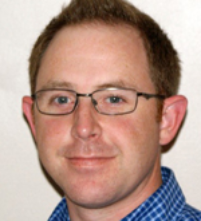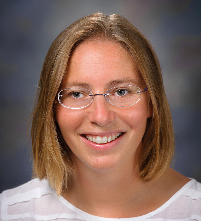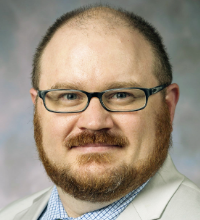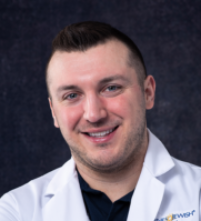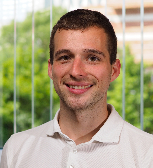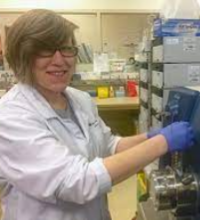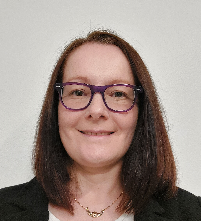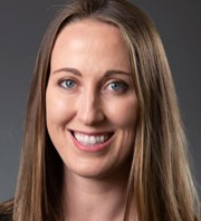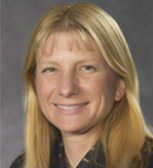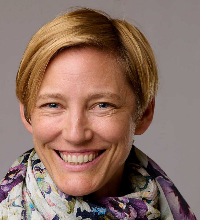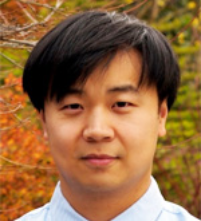MSACL 2024Monterey, CA : March 17-22 |
Details
|
Short Courses (In-Person)
All times are PACIFIC TIME.
February 23 is the deadline to register if you wish to receive printed course material on-site.
The Short Courses for MSACL 2024 will be held only In-Person.
Short courses will be from 8-16 hrs.
Continuing Medical Education (CME) and CE credit will be offered.
You MUST be registered for the conference in order to attend a Short Course. Short Courses have an additional fee.
Short Course Pricing (per HOUR):
| EarlyBird | Regular | After |
|
| Industry | $41/h | $47/h | $57/h |
| Academic | $33/h | $36/h | $39/h |
| Student | $12/h | $16/h | $19/h |
All courses are IN-PERSON only.
All short courses are being processed for Continuing Medical Education (CME) AMA PRA Category 1 Credit™. The amount of credit assigned to each course may be slightly less than the contact hours stated due to hourly breaks.
*Note : You can take more than one course if they don't overlap. Use segment times listed under the course to coordinate.
Course Offering
1. Clinical Proteomics 201 : Clinical Proteomics |
2. Clinical Proteomics 202 : MS-based Precision Diagnostics by Molecular Protein Analysis |
3. Data Science 101 : Breaking up with Excel: An Introduction to the R Statistical Programming Language |
4. Data Science 201 : Flexing with R : Databases to Dashboards |
5. Data Science 203 : Machine Learning : A Gentle Introduction |
6. GlycoProteomics 101 : Clinical Glyco(proteo)mics by Mass Spectrometry |
7. LC-MSMS 101 : Getting Started with Quantitative LC-MSMS in the Diagnostic Laboratory |
8. LC-MSMS 201 : Practical LC-MS/MS Method Development and Bioanalytical Method Validation for Clinical and Non-Clinical Samples |
9. LC-MSMS 203 : Validation of Quantitative LC-MS/MS Assays for Clinical and Academic Use |
10. LC-MSMS 302 : Advanced LC-MS/MS Method Development, Method Troubleshooting and Instrument Operation Needed in Developing Successful Methods for Molecular identification and Quantitation in the Clinical Lab |
11. Lipidomics 101 : Mass Spectrometry-based Lipidomics and Clinical Applications |
12. Metabolomics 102 : Microsampling and Mass Spectrometry – Fit for Purpose in the Clinical Screening and Monitoring Space |
13. Metabolomics 203 : Practical Bioinformatics and Statistics in Metabolomics |
14. Sample Preparation 201 : Sample Preparation and Alternative Matrices for LC-MS Assays |
Course Summaries
Course Schedule
Segment 1 : Monday 08:00 - 12:00 (4 h) --------------- Pre-requisites None. Overview The main goal of this course is to provide an interactive forum in which attendees will be introduced to critical aspects of clinical protein measurements. The topics of this course will be templated on the framework of CLIS guidance document, C64: Quantitative Measurement of Proteins and Peptides by Mass Spectrometry. The motivation for using mass spectrometry to quantify proteins in clinical research and in clinical care will be discussed as part of this interactive workshop. Technical topics uniquely affecting quantitative protein and peptides measurements by mass spectrometry will be a point of emphasis. Case studies from assay inception through validation will be presented and participants will work interactively to critique various aspects of clinical proteomic measurements. Topics Covered
Objectives At the conclusion of this short course, the participant will be able to:
2307
|
|||||||||||
Course Schedule
Segment 1 : Monday 08:00 - 12:00 (4 h) --------------- Pre-requisites A background in quantitative proteomics is helpful but not required. You will need to know the principles of LC and QQQ analysis through multiple reaction monitoring. Overview Did you know proteins may exist in hundreds of molecular proteoforms? And that each specific proteoform may have different functionality, potentially leading to a pathophysiological clinical phenotype ? How could we measure such proteoforms using mass spectrometry? And how could measurement of proteoforms aid in precision diagnostics? In this course, we will explain what proteoforms are, and why they may be relevant to measure in a medical laboratory. We will use real-lab examples of proteoforms known to affect the patients’ health status and guide you through the potential methods on identifying and characterizing proteoforms with multiple-reaction-monitoring MS. We will start the course with the rationale on when and how to develop new diagnostic tests. We will explain the diversity in proteoforms, with a focus on proteoforms caused by mutations, but we will also touch upon PTM-induced proteoforms. Lastly, we will discuss several quality related aspects of these tests. In the end, our aim is to provide the knowledge necessary to apply proteoform analysis by MS in your own (clinical) laboratory. The course will consist of theoretical background, examples of applications and interactive sessions. A background in quantitative proteomics is helpful but not required. You will need to know the principles of LC and QQQ analysis through multiple reaction monitoring. At the end of the course, you will know why molecular protein analysis could be beneficial and how you can apply it in your laboratory. Objectives At the conclusion of this short course, the participant will be able to:
2310
|
|||||||||||
Course Schedule
Segment 1 : Sunday 14:30 - 18:30 (4 h) --------------- Pre-requisites There will be some handouts and software installation before the meeting but no pre-req classes. Overview Does Excel lag on you when you open a file bigger than 1000 rows? Has it ever changed your data to a date against your will? Are you ready to jump right past Tableau and into the world of Data Science using a real programming language? Well, your wait is over because at MSACL we again will be offering a course for complete programming newbies that will help you get going analyzing real data related to LC-MS/MS assay development, validation, implementation and publication. The only background expected is the ability to use a spreadsheet program. The skills that you will acquire will allow you to take advantage of the many tools already available in the R language and thereafter, when you see that your spreadsheet program does not have the capabilities to do what you need, you will no longer have to burst into tears. The course will be run over two days and time will be evenly split between didactic sessions and hands-on problem solving with real data sets. Drs Bunch & Spies will adopt a “no student left behind policy”. Students will be given ample time to solve mini problems taken from real-life laboratory work and focused on common laboratory tasks. All attendees will need to bring a laptop with the R language installed RStudio interface installed. Students may use Windows, Mac OSX or Linux environments. Both R and RStudio are free and open-source. No cash required. Students should be prepared for learning what computer programming is really like. This may involve some personal frustration, but it will be worth it. Obtaining the Software !!! DOWNLOAD PROGRAM PACKAGES PRIOR TO ARRIVAL ONSITE !!! THERE WILL NOT BE OPEN INTERNET WIFI IN THE CONFERENCE CENTER. !!! POWER : Make sure your computer is charged to hold power for 4-8 hrs, as power outlets may not be available. Instructions for installing the R language are here: http://cran.r-project.org/ Instructions for installing RStudio are here: http://www.rstudio.com/ Topics Covered
Objectives At the conclusion of this short course, the participant will be able to:
2285
|
||||||||
Course Schedule
Segment 1 : Monday 14:00 - 18:00 (4 h) --------------- Pre-requisites An introductory R course (including MSACL Data Science 101) and/or experience using R for data analysis. Overview Do you have data files that you would like to accumulate over time into an organized, accessible format and then visualize different aspects of the combined data in an interactive, web-based dashboard? If so, this course is for you! Reproducibility is an important principle for making data analysis trustworthy and reliable. Automation enables users to scale their data analysis steps. The R programming language is one of many tools that can help users automate data analysis workflows while adopting best practices in reproducibility, but there are several packages to choose from when developing these skills. In this short course we will introduce a combination of workflows, packages, and tools that help learners set up data analysis projects, develop pipelines for extracting and storing data, and then develop interactive visualizations to gain understanding from the data. First, we will orient learners to reproducible document formats such as R Markdown and Quarto, emphasizing how data analyses can be communicated effectively. Next, we will do a crash course on relational databases such as SQLite, which can be powerful tools for storing and accessing data at scale. We will then tie together concepts in iteration and automation to develop the basics needed to set up a data ingestion pipeline. In the last portion of the course, we align these concepts with interactive visualization tools to develop an automated dashboard. This short course will be interactive, with frequent short exercises to reinforce new concepts. Familiarity with the R programming language, either from an introductory course or self-learning, is required to participate in the exercises. Finally, concepts in this short course overlap material taught in previous intermediate R courses at MSACL, but here we will focus putting together the tools to develop reproducible, automated dashboards for visualization of laboratory data and provide updates to include some of the latest developments in the R ecosystem. Obtaining the Software !!! DOWNLOAD PROGRAM PACKAGES PRIOR TO ARRIVAL ONSITE !!! THERE WILL NOT BE OPEN INTERNET WIFI IN THE CONFERENCE CENTER. !!! POWER : Make sure your computer is charged to hold power for 4-8 hrs, as power outlets may not be available. Instructions for installing the R language are here: http://cran.r-project.org/ Instructions for installing R Studio are here: http://www.rstudio.com/ Topics Covered
Objectives At the conclusion of this short course, the participant will be able to:
2287
|
||||||||
Course Schedule
Segment 1 : Sunday 14:30 - 18:30 (4 h) --------------- Pre-requisites Data Science 101 or 201 (or equivalent experience) Overview Machine learning techniques have been highly successful in driving the growth of companies like Amazon, Google, Netflix, and other companies that rely on identifying patterns in big data. More importantly, these algorithms are beginning to revolutionize clinical diagnosis and mass spectrometry, from FDA-approved retinal image analysis to robust detection of mass spec chromatographic peaks. But ... what exactly is machine learning? How does it work? How can you apply it to your own data? In this course, we will help you sort through the hype and provide an introduction to machine learning, including an overview of common approaches, known pitfalls, and other important concepts. We will include practical instruction on applying machine learning algorithms using the R statistical language, so familiarity with R at the level of the material taught in Data Science 101 and/or 201 is desirable. Topics Covered
Objectives At the conclusion of this short course, the participant will be able to:
2294
|
||||||||
Course Schedule
Segment 1 : Monday 08:00 - 12:00 (4 h) --------------- Pre-requisites Knowledge on basic mass spectrometry and spectral interpretation. Overview Did you ever encounter glycans, but you -kind of- neglected them as they seemed too complicated to characterize? Or did you just perform a glycan release to make the analysis of your protein a lot easier? You have no idea how to interpret your data when a glycan is present? Fear no more! We are here to provide you with the basics in the field of mass spectrometric glycomics and glycoproteomics. The course will start with a historical overview on glycan research (i.e. how did glycans work their way up to being acknowledged as important study objects) and we will guide you through the maze of different nomenclatures. Moreover, although glycans are well known for their complexity, we will reveal to you the “rules of glycan structures” based on known biosynthetic pathways. This will be followed by an in-depth discussion on glyco(proteo)mic mass spectrometric technologies and workflows. In addition, different sample preparation steps and data analysis approaches will be covered. We will close-up with a session about glycomic biomarker discovery. The course will run over two days and time will be split between lectures and workshops (e.g. how do you recognize a glycan in a mass spectrum and how do you assign it). While not everything can be covered within these two days we will ensure that you will know your “glyco-basics” in the end. Moreover, participants are encouraged to submit any specific glyco-questions they have prior to the course and we will try to discuss them during the course.
Objectives: At the conclusion of this short course, the participant will be able to:
2315
|
||||||||
Course Schedule
Segment 1 : Sunday 14:30 - 18:30 (4 h) --------------- Pre-requisites Interested in a detailed, practical introduction to clinical quantitative LCMS Overview Is your laboratory under pressure to purchase an LC-tandem MS or is the ROI you wrote last year haunting you now? This short course is designed for attendees implementing quantitative LC-tandem MS for patient testing who have laboratory medicine experience but no mass spectrometry training - CLS bench analysts, supervisors, R&D scientists, and laboratory directors. Theoretical concepts necessary for a robust implementation of clinical mass spectrometry will be presented – but the emphasis is on practical recommendations for:
Objectives At the conclusion of this short course, the participant will be able to:
2270
|
||||||||||||||
Course Schedule
Segment 1 : Sunday 14:30 - 18:30 (4 h) --------------- Pre-requisites LC-MSMS 101 Overview Both LC-MS method development and bioanalytical method validation play a crucial role for successfully conducting regulatory studies including nonclinical, biopharmaceutics, and clinical pharmacology studies. The objective of this course is to offer practical training for practitioners, physicians, laboratory scientists, industrial scientists, and health care professionals in the clinical laboratory. It focuses on practical LC-MS method development and bioanalytical method validation for clinical and non-clinical samples. It takes participants step-by-step through the concepts and techniques to develop and validate bioanalytical methods. After this course, participants will be able to independently develop and validate their own LC-MS methods and apply the validated methods for their routine clinical and non-clinical studies. Objectives: At the conclusion of this short course, the participant will be able to:
2273
|
|||||
Course Schedule
Segment 1 : Monday 08:00 - 12:00 (4 h) --------------- Pre-requisites Individuals with previous mass spectrometry experience (clinical or academic) or those who have taken the LC-MSMS 101 and/or 201 course and are looking to expand their knowledge. Overview This course is intended for those with previous mass spectrometry experience who are looking to expand their knowledge and skills with regards to assay validation for both clinical and academic purposes. The course will heavily focus on quantitative small molecule assays. The course will provide a short overview of development followed by an in-depth discussion of how to validate liquid chromatography tandem mass spectrometry assays. The course will conclude with a discussion of the measures and metrics to use for monitoring assay performance once testing is live. Throughout each section, applicable and practical guides for validation experiments and acceptance criteria will be provided, as well as processes for ensuring assay performance post-go-live. For each step of assay development, we will highlight experiments to perform along the way to identify issues pre-validation. Validation studies will include an overview of the studies necessary for both clinical and academic purposes. The clinical validation requirements for CLIA, CAP, NY State, and FDA regulated environments will be presented. The academic validation requirements for submitting such assays (or studies using them) to high-impact, peer-reviewed journals (Clinical Chemistry, Molecular & Cellular Proteomics, Journal of Clinical Endocrinology and Metabolism, etc) will be presented. Post-go live monitoring will include discussion of essential performance metrics, performing staff competency, minimizing manual data entry and how to facilitate interfacing with LIS, and finally a discussion of post-go-live issues. Topic Covered This short course will include 12 approximately 1 hour modules with 15 min for exercises and Q&A at the end of each module.
Objectives: At the conclusion of this short course, the participant will be able to:
2277
|
||||||||
Course Schedule
Segment 1 : Sunday 14:30 - 18:30 (4 h) --------------- Pre-requisites Working knowledge analytical chemistry, including experience with LC separations and/or mass spectrometry. Attending level 100 or 200 LC/MS courses at MSACL would be beneficial. This is a course for those who want to increase their understanding of LC-MS/MS, who want to learn how to develop a successful quantitative and qualitative LC-MS/MS assay and a deeper understanding the technique to achieve better sensitivity, specificity or throughput in their laboratory. Overview This course is designed for the scientist who uses LC-MS/MS in the clinical lab, who wants a deeper understanding in steps towards developing successful methods, optimizing methods, trouble shoot methods and solving problems employing LC-MS/MS. The course covers important aspects in understanding and optimization ionization with electrospray on multiple instrument platforms including triple quadrupole, time-of-flight, quadrupole time of flight and orbit trap mass analyzers. The course will discuss sample preparation, modes of chromatography and MS/MS considerations with respect to method development and optimization for the analysis of “real-world” samples by LC-MS/MS, to achieve the best sensitivity, specificity, and sample throughput. This course focuses on method development method troubleshooting and application for the analysis of both small and large molecules that are clinically relevant. All examples are taken from real world analyses, performed by Dr. Voyksner at LCMS Limited. The concepts presented in the course are reinforced through numerous problem sets the attendees will work on throughout the 16 hour course. The last part of the course is an open forum where each attendee is invited to share a current LC-MS/MS issue they face. As a class we work through potential solutions and experiments to be performed to find a solution to the student problem, applying the concepts taught in the class and Dr. Voyksner’s 40 plus years of experience in LC-MS/MS. From past classes this has been the attendee’s favorite part of the class. Topics Covered
Objectives At the conclusion of this short course, the participant will be able to:
2281
|
|||||
Course Schedule
Segment 1 : Monday 14:00 - 18:00 (4 h) --------------- Pre-requisites LC-MS/MS, clinical translation, lipidomic applications, method harmonization AND an interest in lab medicine and clinical lipidology. Overview This one-day course is meant to (1) create awareness for the importance and therefore potential value of lipid testing beyond cholesterol and triglycerides for future clinical applications. We will (2) then outline currently available technologies and their respective opportunities and challenges, and (3) discuss candidate molecules in the context of current case studies. Topics Covered
Objectives At the conclusion of this short course, the participant will be able to:
2312
|
|||||||||||
Course Schedule
Segment 1 : Sunday 14:30 - 18:30 (4 h) --------------- Pre-requisites None. Overview The classic dried blood spot (Guthrie Spot, NBS spot) has been used routinely for 60 years in inborn errors of metabolism (rare disease screening of newborns) space in addition to health monitoring of the detected disorders. Mass spectrometry advanced this space 30 years ago to take advantage of its multianalyte profiles (the early days of metabolomics) to detect rare diseases. It was the introduction of multiple biomarkers in clinical assessment. As mass spec evolved in this space, new workflows and pre-analytical methods, sample preparation chemistry was altered by taking advantage of the dried microsample format and extraction chemistry. DBS offered a replacement to liquid microsamples, and the risks and costs associated with infectious disease exposure, cost of shipping using the cold chain, storage and most recently patient centered sampling where remote, or home sampling is made possible. Most chemistry workflows are still dominated by liquid blood or plasma and immunoassay platforms, they are not necessarily suitable for microsample collection as demonstrated in the choice for newborn screening (200-300 µL) versus 1-10 mL for a venous blood draw. Furthermore, a dried microsample offers better improved stability for some molecules due to degradation of active enzyme, light or heat. Beyond newborn screening standard, the pace of adoption of dried blood versus liquid plasma is slowed because of the lack of bridging studies. Therefore, an understanding of DBS versus liquid is critical in designing these experiments. This course will describe the advantages of filter paper for mass spec workflows in areas of sample cleanup, extraction, manipulation as well as examples of successful analysis. We will provide examples of existing methods in use in clinical analysis and will expand upon last year’s MSACL course. As important are its advantages, we will discuss limitations from the lack of precision of classic Guthrie cards because of volume uncertainties to the problems of some mass spectrometry analysis of molecules like proteins. Finally, we will correlate these issues with the ever-expanding area of metabolomics, lipidomic and more important how a DBS can be integrated with other technique like molecular and immunoassays to provide a better clinical result from which the clinician can make earlier accurate diagnosis. Ultimate DBS can improve health care services as well as access with remote collection. Objectives At the conclusion of this short course, the participant will be able to:
2302
|
||||||||
Course Schedule
Segment 1 : Monday 14:00 - 18:00 (4 h) --------------- Pre-requisites Basic understanding of the field of metabolomics and LC-MS. Overview Metabolomics refers to the comprehensive measurement of small molecules in biofluids by either mass spectrometry (MS) or nuclear magnetic resonance (NMR) with the aim of covering multiple KEGG pathways, exposome products, and chemical reactions to provide new insights into disease etiologies. MS based metabolomics generally requires the use of liquid chromatography to separate metabolites based on polarity and high-resolution MS to accurately measure the mass-to-charge (m/z). The combination of retention time and m/z accuracy provides a reliable method to identify metabolites, which is critical for making disease marker discoveries. Understanding how data is generated is key to understand how to process data. This short course will instruct attendees on bioinformatics components to data processing in metabolomics with hands on instruction using an open source software package. This short course will also discuss basic principles of statistical analysis with hands experiences provided. Topics Covered
Objectives At the conclusion of this short course, the participant will be able to:
2304
|
|||||
Course Schedule
Segment 1 : Monday 08:00 - 12:00 (4 h) --------------- Pre-requisites Individuals with previous mass spectrometry experience looking to expand their knowledge. Summary: This course will encompass various sample preparation approaches used for LC-MS assays. The course will highlight not only the importance of sample processing in the clinical laboratory environment, but also illustrate the “fit for purpose” application of processing techniques in clinical mass spectrometry. This course will also discuss the theory behind different specimen preparation methods, strengths and weaknesses of each approach, as well as opportunities for automation. The first section of the course will serve as a primer of the role of upfront sample management, utilizing examples in blood and urine specimen sources. There will also be an introduction to the application of LC-MS approaches in alternative matrices. The second section of the course will elaborate on the foundations established in the first half, and expand into newer technologies and automated alternatives for sample processing. Topics will be covered through lecture, Q&A, Case Studies, and small group exercises. Topics covered include
After attending this short course, participants will be able to:
2298
|
||||||||




